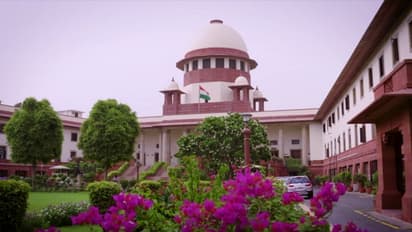Supreme Court's five-judge bench upholds Section 6A of Citizenship Act from Assam Accord

Synopsis
The decision stemmed from a petition asserting that the influx of refugees from Bangladesh (formerly East Pakistan) had disrupted Assam's demographic balance. The petition claimed that Section 6A of the Citizenship Act infringed on the political and cultural rights of the state's indigenous residents.
The Supreme Court on Thursday (October 17) affirmed the constitutional validity of a significant citizenship provision, allowing Bangladeshi immigrants who entered Assam to register as Indian citizens. A five-judge constitutional bench, led by Chief Justice DY Chandrachud, delivered the verdict with a majority of 4:1. Justice JB Pardiwala dissented, while Justices Surya Kant, MM Sundresh, and Manoj Misra supported the ruling.
The decision stemmed from a petition asserting that the influx of refugees from Bangladesh (formerly East Pakistan) had disrupted Assam's demographic balance. The petition claimed that Section 6A of the Citizenship Act infringed on the political and cultural rights of the state's indigenous residents.
In delivering the majority judgment, Chief Justice Chandrachud stressed that the introduction of Section 6A was a political response to the unique challenges Assam faced due to the significant influx of illegal migrants following Bangladesh's independence. He noted that the influx posed a severe threat to the state's culture and demographics.
"The central government could have applied this act to other regions, but it was deemed specific to Assam due to the scale of migration and its impact," the Chief Justice explained. He highlighted that the influence of 40 lakh migrants in Assam is more pronounced than that of 57 lakh migrants in West Bengal, primarily because of the smaller land area in Assam.
The ruling specifically pertains to immigrants who arrived after March 25, 1971, further cementing the provisions of the Citizenship Act as they relate to the state of Assam. This decision is expected to have significant implications for citizenship rights and the political landscape in the region, particularly in light of ongoing discussions about migration and its effects on local cultures.
How much refund after RAC ticket cancellation? Here are the rules
Stay updated with the Breaking News Today and Latest News from across India and around the world. Get real-time updates, in-depth analysis, and comprehensive coverage of India News, World News, Indian Defence News, Kerala News, and Karnataka News. From politics to current affairs, follow every major story as it unfolds. Get real-time updates from IMD on major cities weather forecasts, including Rain alerts, Cyclone warnings, and temperature trends. Download the Asianet News Official App from the Android Play Store and iPhone App Store for accurate and timely news updates anytime, anywhere.